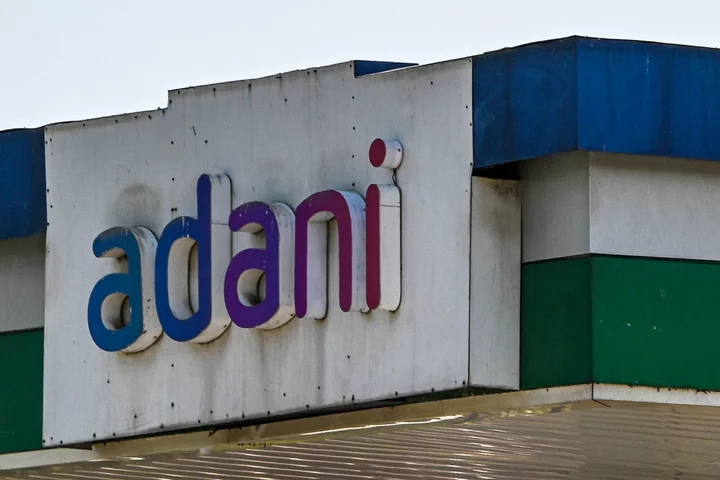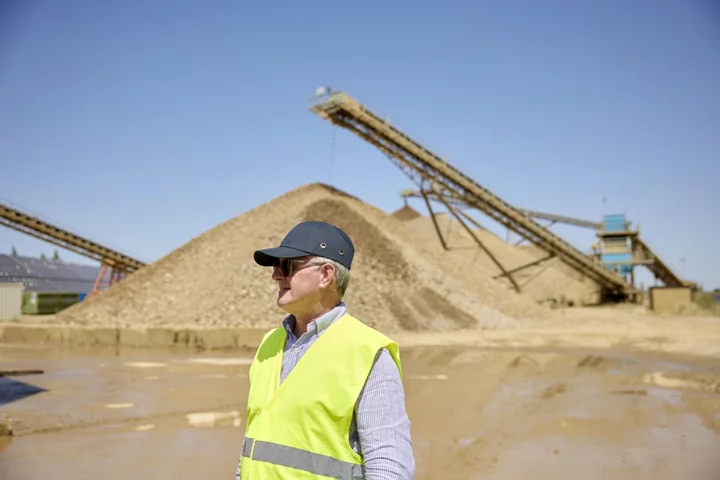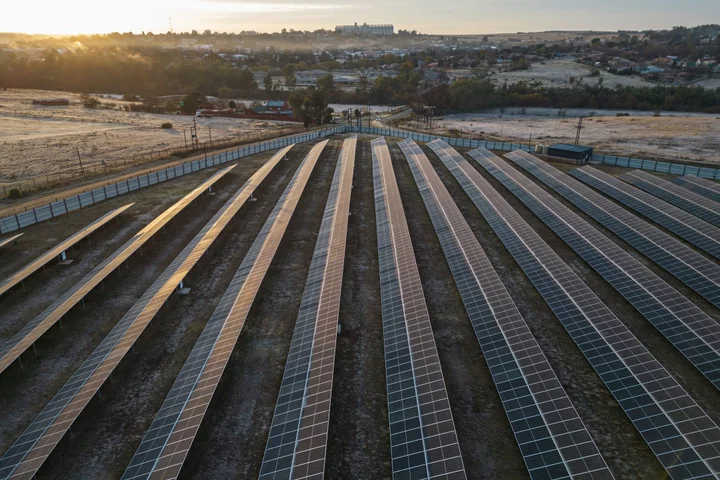Three Adani Group companies, including Adani Green Energy Ltd., have lost their endorsement from the world’s leading arbiter of corporate green goals, a blow to the industrial conglomerate’s attempt to reposition itself as a leader of India’s energy transition.
Adani Green, Adani Transmission Ltd. and Adani Ports & Special Economic Zone Ltd. were removed in late April from the list of “companies taking action” published by the Science Based Targets initiative. The UN-backed group helps companies establish concrete plans to reduce emissions consistent with the Paris Agreement’s target on limiting global warming.
“The SBTi carried out an internal assessment based on publicly available and submitted information and concluded that the involved companies are not in conformity” with the initiative’s standards and policy requirements, an SBTi spokesperson said by email.
Sustainability-minded investors commonly look for SBTi’s stamp of approval, and stocks bearing the Adani name appeared in more than 500 ESG funds in early February. That same month, a filing revealed Adani was using stock from its Green companies as collateral to help finance its controversial Carmichael coal mine.
Watchdog groups say ESG investors may have inadvertently channeled funds into fossil fuels through their Adani Green investments, and losing SBTi’s validation is another setback. The Group lost billions of dollars in market value earlier this year following a short-seller’s accusations of corporate fraud built on a constellation of shell companies and related-party transactions.
Adani Responds
The Adani Group said it had asked the SBTi to justify the exclusion and was “optimistic” the SBTi would “review and reverse its decision.”
“None of these companies is involved in the exploration, extraction, mining and/or production of oil, natural gas, coal or other fossil fuels,” a spokesperson for the conglomerate said. All three are “publicly listed independent companies” and have been “working on preparing their low carbon transition plans” after committing to SBTi.
The group is trying to raise about $800 million for new green energy projects, part of billionaire Gautam Adani’s push to transform his conglomerate into the world’s largest producer of renewable energy and a leader in green data storage.
Adani Green Energy reported surging fourth-quarter profits last week, one sign the group is recovering from the damage done by the short-seller’s attack.
SBTi has removed at least 16 other companies from its list, according to its website following an update to the organization’s fossil fuel policy, which excludes companies with any “direct involvement in exploration, extraction, mining and/or production of oil, natural gas, coal or other fossil fuels.” Adani Group companies Ambuja Cements Ltd. and ACC Ltd. have SBTi validated near-term targets and retained their place on the list.
On March 21, nonprofits Ekō and Market Forces filed a formal request for SBTi to review the five Adani group companies on its list. The letter refers to the “interconnected financial nature of the group,” a “flagrant disregard” for corporate governance and its fossil fuel expansion plans.
Will van de Pol, acting executive director at Market Forces, welcomed SBTi’s move, adding it’s “critical” that such initiatives are not used for greenwashing.
“No Adani Group company can be considered aligned with the Paris Agreement while it’s expanding the scale of the fossil fuel sector,” he said.
Author: Natasha White, Sheryl Tian Tong Lee and P R Sanjai









